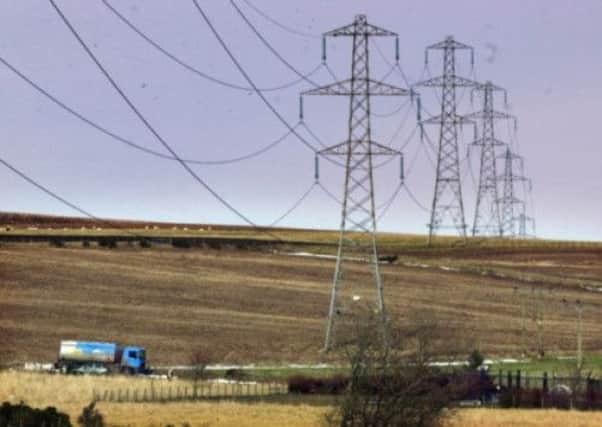Scottish independence: Split from UK energy market call


Published by the left-wing Jimmy Reid Foundation amid growing anger over the costs of Britain’s energy bills, the report says that, with either independence or devo-max, a new public corporation should be put in charge of running the grid, pricing electricity and investing in new energy infrastructure.
It would then pour billions of pounds into boosting Scotland’s green energy potential, and also reduce the flow of oil coming from the North Sea, in a bid to cut CO2 emissions.
Advertisement
Hide AdAdvertisement
Hide AdBacked by the Scottish Greens – who are hosting their conference in Inverness this weekend – the authors argue that in private hands the UK energy market is on the point of collapse, lacks investment and is pushing up bills for hard-pressed consumers.
But critics last night dismissed the proposals as “fanciful”, saying any plan which ended the UK-wide energy market would mean the vast cost of subsidising expensive green energy would fall on households in Scotland.
The paper, written by contributors from Glasgow, Heriot-Watt and Glasgow Caledonian universities, says that a Scottish Energy Authority (SEA) and a Scottish Electricity Generation Corporation should be created after powers are transferred to Holyrood to oversee the entire energy sector.
It would then run down nuclear, coal and gas-fired stations and plough massive investment into renewable energy by issuing billions of pounds worth of government bonds.
In return, it argues, wind farms and new renewable projects will all be owned by the government or community groups. The paper claims bills could be lower because government could borrow at a lower rate and would not have to make a profit.
It concludes that because of “inherent market failures” in the UK’s energy market, “only by breaking out of this policy regime and developing an alternative agenda around new forms of strategic planning and public ownership can Scotland fulfil its true potential and wider obligations as an energy-rich nation”.
It also calls for a completely different approach to the North Sea. “Rather than an over-focus on producing as much oil as possible – current UK and Scottish Government objectives coincide in trying to increase the rate of production – the SEA would seek to reduce production from the North Sea, developing a more integrated and responsible approach to carbon emissions”.
The call comes after reports on independence have shown that North Sea oil revenues will be required to pay for current spending in Scotland.
Advertisement
Hide AdAdvertisement
Hide AdIt also notes that most of Scotland’s privatised energy assets at present are foreign-owned. It adds: “It could plausibly be argued that French, Norwegian and Russian governments – through their state-owned corporations – have collectively far more control over UK (and Scottish) strategic energy interests than any British political actor.”
Alison Johnstone, Scottish Green MSP for Lothian and a member of Holyrood’s economy and energy committee, said: “By taking responsibility, Scotland could prioritise common ownership, create high-quality jobs and move away from the fossil fuels we simply cannot afford to burn.”
The move would be best achieved through independence, the authors declare, although they say it could also be achieved by transferring responsibility for energy to a devolved Scottish Government.
But the plan met with little enthusiasm from the SNP government last night. A spokeswoman said: “The Scottish Government does not propose the nationalisation of the assets of the power companies.
“But it’s good to have a lively debate about how Scotland’s enormous energy resources can be used to benefit consumers, communities and the wider economy, particularly as we know Westminster decisions have led to the squandering of billions of pounds of Scotland’s energy wealth.”